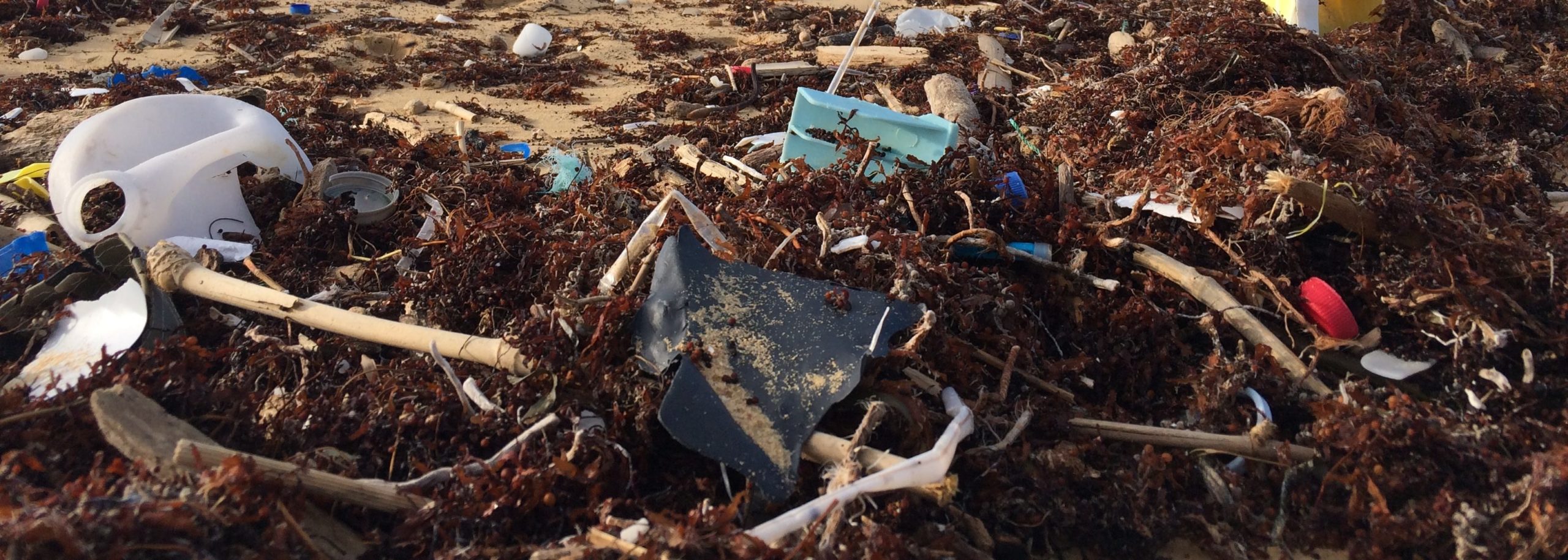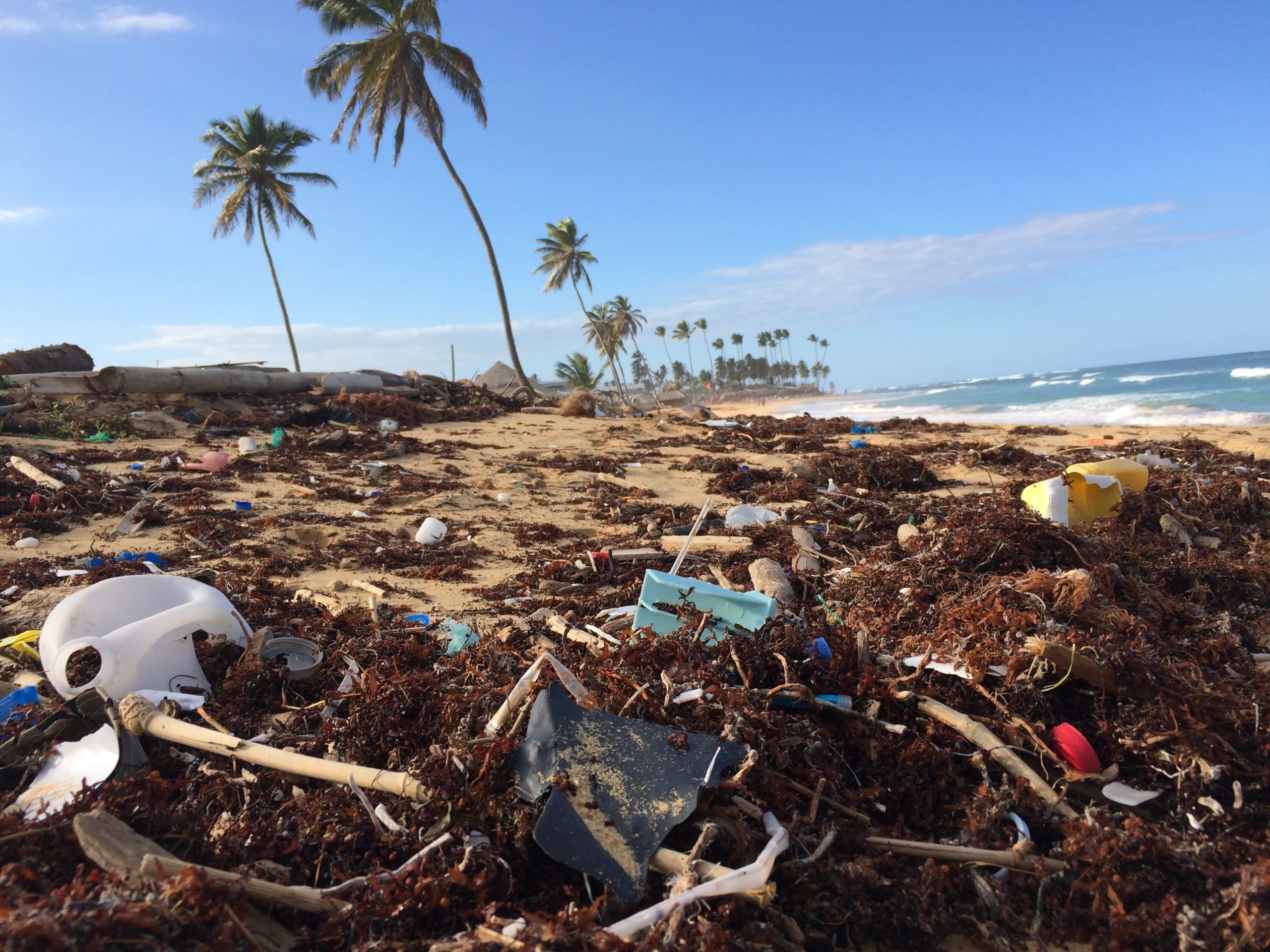Published: 11/16/2021
By Jamie Hansen, Global Health Communications Manager
Plastics pose an ever-increasing global health challenge, and we need to think far beyond recycling to equitably address the widespread health impacts, writes a team from the Center for Innovation in Global Health in a new perspective piece in the American Journal of Tropical Medicine and Hygiene.
The perspective, published online Nov. 11, 2021, calls on the global health and medical community to address this growing issue head-on through innovative research and advocacy.
“Plastics are everywhere, and yet we’re just beginning to learn about the serious health threats they pose to humans — particularly in many of the world’s most marginalized communities.”
Erika Veidis, human and planetary health program manager at the Stanford Center for Innovation in Global Health
“Plastics are everywhere, and yet we’re just beginning to learn about the serious health threats they pose to humans — particularly in many of the world’s most marginalized communities,” said Erika Veidis, human and planetary health program manager at the Stanford Center for Innovation in Global Health and the lead author of the paper.
The world has produced more than eight billion tons of plastic since the 1950s—yet recycled less than 10 percent of it. The problem is literally piling up, as some plastics take more than 400 years to decompose. This is especially true in low- and middle-income countries (LMICs), where waste infrastructure hasn’t been able to keep up with plastic use and foreign imports. Recent research has found microplastics in our food, over 80% of global tap water samples, the guts of infants, and even the placenta. One particularly memorable statistic: we ingest a credit-card sized amount of plastic each week.
And, despite the efforts of many countries to regulate plastic use (34 out of 54 of Africa’s countries have implemented some type of plastic ban, for instance) regulations are undermined by industrial lobbying. Fossil fuel companies have increasingly invested in plastics as oil and natural gas fall out of favor.
All this plastic results in a range of direct and indirect health risks. As larger plastics break down, they create micro and nano plastics, tiny particles that end up in our blood, lungs, and even human placenta, wreaking havoc on our immune and endocrine systems, among other things. And, while these tiny particles get a lot of attention these days, the paper also calls attention to the risk of macro-plastics – particularly in LMICs, where plastics often overwhelm waste infrastructure. Plastics flooding the streets or stored at home it can provide habitats for mosquitoes to breed, contributing to a range of infectious diseases, including arboviruses like dengue, chikungunya, Zika, and yellow fever. Plastic trash can also promote cholera, dysentery, and more by providing rich environments for microbes to flourish.
“We can’t recycle our way out of our global plastic problem.”
Michele Barry, MD, FACP, Director of the Center for Innovation in Global Health
“We can’t recycle our way out of our global plastic problem,” said Michele Barry, MD, FACP, Director of the Center for Innovation in Global Health and the senior author of the paper, which was also written by CIGH Executive Director Allison Phillips and Faculty Fellow Desiree LaBeaud. “Now is the time for leadership and innovation within the global health community to develop policies and solutions that ease the global burden of plastic pollution. ”
The paper highlights an urgent need for such measures, including:
- Economic practices that reimagine supply chains to decrease packaging and single-use materials
- Developing community interventions, particularly those that financially incentivize plastic collection and recycling
- Developing less harmful plastic alternatives such as biodegradable and compostable plastics
- Improving sanitation, air filtration, and water infrastructure to manage human exposure to macro-, micro-, and nano-plastics
- Innovating new solutions, such as using micro-organisms to decompose plastics
Read the perspective here. To see an example of a successful program to mitigate plastics in the environment, visit our Trash to Treasure project webpage.
Anyone with questions, comments, or interest in getting involved can contact: Erika Veidis, eveidis@stanford.edu.

